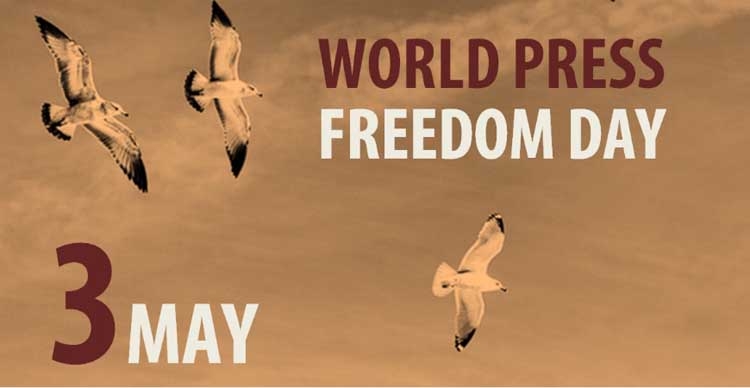Some years ago an English language Pakistani newspaper Express Tribune published from Karachi showed the courage to publish an article “Is Balochistan the next Bangladesh?” which was indeed mind-boggling.
Before the coronavirus pandemic, the international media when reporting on Pakistan’s civil strife and guerilla attacks on Pakistan security forces, especially in Balochistan and Waziristan warns the authority that another Bangladesh is in the offing.
The fresh civil strife in Pakistan has rekindled international media to weigh against the incidents in Waziristan with the brutal birth of Bangladesh in 1971.
Pakistan’s leading newspaper’s political commentators and popular TV talk-show hosts have put on the courage to be outspoken regarding the appalling human rights abuses committed by Pakistan military’s in Balochistan and Waziristan and often refer to infamous crackdown ‘Operation Searchlight’ leading to bloody liberation war in Bangladesh.
It’s indeed worth pondering that Pakistan media, politicians, and rights group dare to speak up against atrocities by Pakistan security forces, enforced disappearances, arbitrary detention, and torture of nationalists of Balochistan and Waziristan.
Such outcry against crime against humanity was long-standing war jingoism between GHQ Rawalpindi’s top hawks and the nationalist leaders of Waziristan and Balochistan.
The Pashtun Tahafuz Movement or PTM was launched by human rights activist Manzoor Pashteen to address the grievances in Waziristan and Pashtuns living elsewhere in Pakistan.
The Pashtuns had to bear the brunt of the global “war on terror” for nearly two decades when the US and its allies invaded Afghanistan following the 9/11 attacks. The jihadists and their terror leaders have moved into Pakistan from Afganistan mostly into the areas where Pashtuns had lived for centuries. To flush out the Jihadist from Waziristan, the Pakistan Army launched combing operations to “clear the area from terrorists”.
Leaders and activists of the PTM, despite being a non-violent movement, the Pashtuns are killed, tortured, assaulted, detained, or forced into hiding. Pakistan’s political discourse is showing echoes of the creation of Bangladesh, writes another journalist Abubakar Siddique in the article “Pakistan’s Pashtun Crackdown Echoes Bangladesh War”.
As Tarek Fatah, a Pakistan born Canadian journalist and writer often tweets that Pakistan has not learned from the Bangladesh war and instead of committing a similar crime against humanity in Balochistan and Waziristan.
New York Times in a joint article contributed by Pakistani and Indian journalists Salman Masood, Ziaur Rahman and Mujib Mashal writes: “Now, the military seems set to make that prediction true, setting up a conflict that some observers are already comparing, if prematurely, to when Pakistan’s oppressed Bengali population broke away to form Bangladesh in 1971.”
Taha Siddiqui, an award-winning Pakistani journalist living in exile in France in an analysis in Aljazeera online writes, a disaster looms in Pakistan, if the grievances of Pashtuns, the second largest ethnic group in Pakistan, demands remain unaddressed.
“In the past, a similar rights movement launched by East Pakistani residents eventually culminated into a movement for independence from Pakistan, and let to the creation of Bangladesh in 1971,” says an Aljazeera article “The PTM in Pakistan: Another Bangladesh in the making?”.
Almost 50 years later, Taha laments that it seems that Pakistan’s ruling elites have not learned much from history and seem to be repeating the same mistakes that led to much pain, bloodshed, and irreversible damage to the nation in the 1970s.
Moreover, Manzoor Pashteen and PTM supporters began to pressure the Pakistani government to reform the draconian laws that govern the tribal belt that violate basic human rights, such as the law of collective responsibility which the Pakistani state routinely uses against locals from the tribal belt – punishing entire families, villages and tribes for the crimes of one person.
The PTM also called for all accusations of extrajudicial killing to be investigated independently and demanded the practice of enforced disappearances – a legal term coined to explain abductions allegedly carried out by the Pakistan Army – to come to an end, writes Taha Siddiqui.
Rather than addressing the genuine grievances expressed by this growing movement, the Pakistani government chose to crackdown instead of a political solution.
First published in The Hills Times on 25 May 2020
The writer is an independent journalist, media rights defender in Bangladesh. He is a recipient of Ashoka Fellowship and Hellman-Hammett Award. He could be reached at saleemsamad@hotmail.com & Twitter: @saleemsamad






